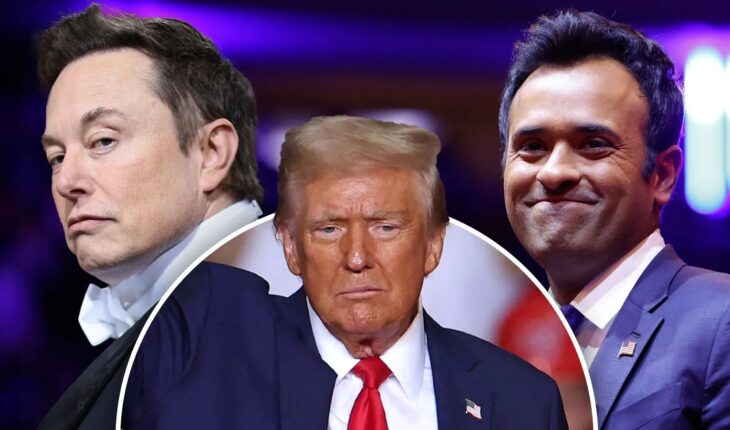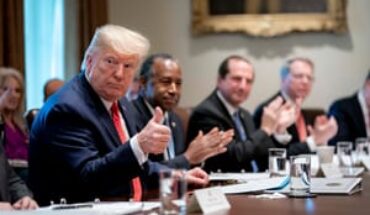It is being increasingly asked in India, whether the PM Narendra Modi’s policies could really usher in a transparent people-friendly cost-effective system of governance. A series of informal exchanges of ideas among academicians, top civil servants, both working and also have superannuated reveal that his administration despite having a stable political system continues to be in an election mode indulging in false narratives of Modi’s successes.
The cost of the administration has gone up in the past 10 years, and so the black money; it has mushroomed through the shell companies, including the huge funds being siphoned off to the accounts in the Swiss Banks, and recently it has recorded unprecedented deposits from Indians.
Interestingly, this disquiet has recently been noticed crystallizing among the non-political, but experienced people having a thorough knowledge of the governance and the geo-politics. These mute voices seldom vocal on the media and public platforms, expect that being a parliamentary democracy, the opposition parties should have picked up the gauntlet for challenging the government for better governance, but instead they have been indulging in accusations without offering substantial evidences against the government as well as the prime minister personally.
On the other hand, the President-elect, Donald Trump, has already usher in live debates for stopping wasteful expenditures in different departments of the Federal government, even two months before his formal inauguration as the President scheduled on January 20,2025. During this on-going period of transition, Trump’s team of DOGE (Department of Government Efficiency) comprising have already seen working for restructuring federal agencies slashing wasteful spending and cut down excess regulations.
The National Taxpayers Union Foundation of the US has noticed that the unnecessary expenditures coast 546 billion USD per year, almost two percent of the country’s gross domestic product. It is a voluntary organization, but in India, the statutory role of the Public Accounts Committee is being undermined. Meanwhile, Vivek Ramaswamy has stated that “the slapping the bureaucracy on the wrist won’t solve the problems, the only right answer is a massive downsizing.”
Public Accounts Committee or PAC
The Indian constitution has provided an impartial auditing system of the government under the Competent and Auditor General of India, who submits his reports to Parliament through the Public Accounts Committee. Interestingly, its present chairman, K.V. Venugupal, a leader of the Congress Party, but it is not known whether he has made any substantial contribution in discipling government expenditures in recent years.
It, naturally has caused dismay in the civil society. A senior bureaucrat has recently confided to The Financial World ( FW) that a sense of helplessness has percolated even within the ruling establishment comprising the BJP and its allies. It has disrupted the fragile sensitive balance of power within the members of Parliament in the ruling party. It was witnessed, when for his third Modi got himself leader of the National Democratic Alliance and later the docile MPs of the ruling party endorsed the PM for his third term; according to the established parliamentary procedure, he should have been endorsed for the coveted post only after being chosen by his own party. Thus, the role of selecting the new prime minister was denied to the newly elected BJP MPs.
In this denial process, the party leaders like the Defense Minister, Rajnath Singh, and other cabinet ministers, including the Lok Sabha speaker, Om Birla, were seen functioning like a deputy secretary in the PMO. It appeared that before the meeting of the parliamentary party, they were handed over the text to adhered to from the powers-that be to toe the political line, as prescribed to them. Thus, there is little hope for any improvement from the honorable members of parliament.
System Hijacked
In the American system, both Elon Musk and Vivek Ramaswamy are established billionaires and they oppose crony capitalism i.e. offering level playing ground to all competitors, but in the present Modi regime, the company for road building or a powerhouse is often chosen before the government invites tenders. The top bureaucrats assigned to regulate the system are being emasculated, who have little option but to obey the diktat from the above.
The tax collectors are being used to serve the political interests in India; recently, the income tax authorities issued notice to a senior bank official, because her husband, a former secretary in the Union Finance Ministry, later elevated as the member of the Election Commission, had dared to unearth the web of the black money being used by the ruling party. Instead, he finally decided to quit the Election Commission. His wife, however, was exonerated only after the ruling party’s bigwigs were told that the details regarding their financial bungling and parking of the country’s funds abroad would soon be released on the international media. It had the desired effect. The income tax notice was finally withdrawn.
It is difficult to ascertain the possible impact of the personal chemistry between Modi and Mukesh Ambani on the country’s governance. Most of the political observers in India as well as abroad were stunned, when during the oath-taking ceremony Ambani expressed his appreciation for Modi by keeping his hand on the shoulders of the prime minister, indeed a friendly gesture. Since 1947, no businessman ever dared to violate the established protocol and norms towards the head of the government.
Another reason that few can even debate the policies of the present regime is due to the fact that there is no political challenge from the disparate outfits being run like a family business from Tamil Nadu to UP and Bihar. In this context, if any policy shift for introducing economy in the governance, it has to come from Narendra Modi himself. Few can teach him the art of governance to his all-knowing establishment, he, however, continues to enjoy his decade old rhetoric of ushering in a corruption-free regime, and Indian economy is poised to supersede China soon. The situation is alarming, because the Modi establishment has started believing in its own propaganda.
Gopal Misra has been associated with national and international media. His books on journalism and geo-politics have been well-appreciated. Views are personal.





